It’s time for women refugees to have a seat at the table
Why do some conferences on refugee integration not feature any refugee speakers? On International Women’s DayExternal link, two women with different perspectives explain the challenges of making female refugees seen and heard in the integration process.
From #MeTooExternal link to Women’s MarchesExternal link to strikes protesting against femicideExternal link, women around the world are speaking out. Women in Switzerland can feel proud of the historic Switzerland-wide women’s strike last June and the large number of women they helped bring to Swiss Parliament last autumn.
Governments, universities, corporations, media outlets, civil society organisations and families are actively discussing measures to improve gender equalityExternal link, especially when it comes to leadership and decision-making positions, where the gender gapExternal link is particularly acute. Social norms are changing quickly; for instance, it is now considered bad form to host a conference in which all the speakers or panellistsExternal link are male.
This is all progress. But when it comes to listening to women who are refugees, social norms have not quite caught up. Refugee women are often regarded as people to be talked about, rather than colleagues to be talked with or listened to. We explain the challenge below, from two different perspectives.
Alexandra Dufresne
A few years ago I attended a Switzerland-wide conference on refugee integration. Panellists included officials from the State Secretariat for Migration (SEMExternal link), academic researchers, government and media representatives, and staff from leading Swiss NGOs and civil society organisations involved in refugee services and resettlement. The speakers were well-prepared, expert, engaging and clearly deeply committed to improving refugee integration.
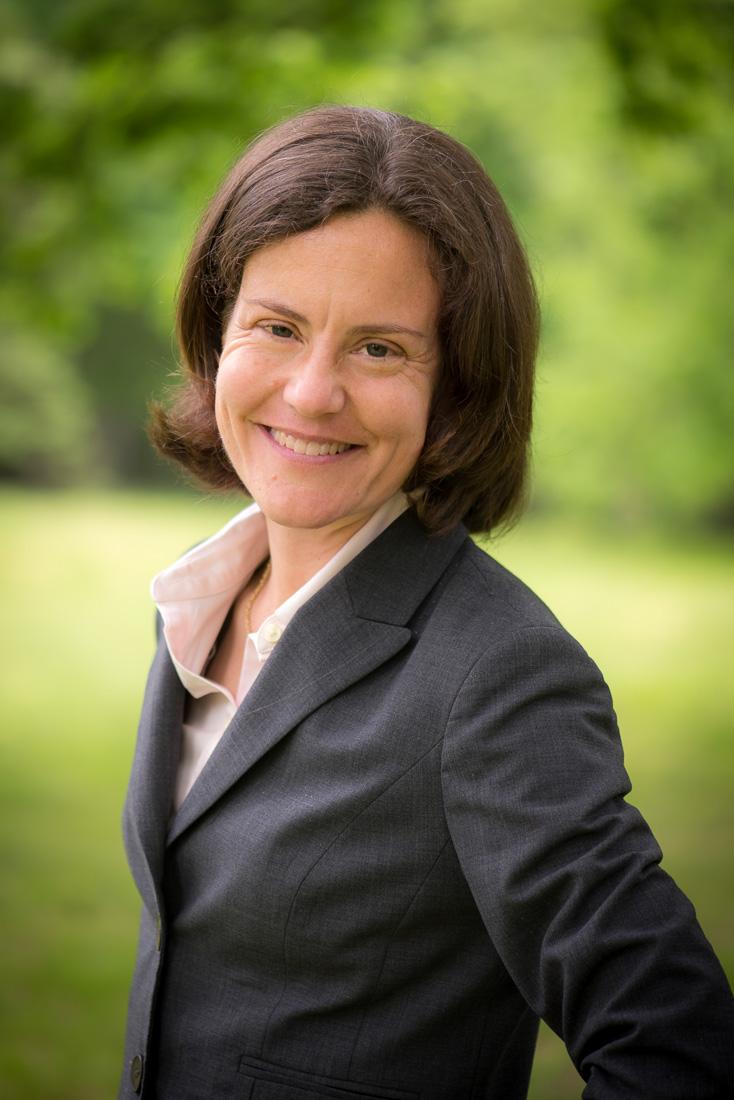
However, I was surprised to see that no refugees spoke at the conference. A female refugee performed music and between songs she asked “to say a few words”, but she was not given a proper speaking slot on any of the numerous panels. Indeed, I’m not sure if any other refugees even attended the conference.
It was puzzling. In the US it would be considered extremely rude to speak about a group of people (such as youth in the foster care system, or refugees, or individuals with disabilities) without inviting individuals in the group to speak. Indeed, organising a conference without affected individuals in the key leadership positions would likely be frowned upon, as people are rightfully concerned about tokenism, glass ceilings and other ways of sidelining historically marginalised groups.
I figured this conference was an outlier. However, in numerous subsequent conversations with refugee advocates in Switzerland and Europe, I have had to press hard to make the case that refugees – particularly refugee women – must be given a seat at the table.
The resistance is threefold. One concern often expressed is that the experience or insights of refugees are “anecdotal”, that is, too personal and unrepresentative of the experience of all refugees. By choosing a handful of refugee spokespeople (so the argument goes), one runs the risk of suggesting that their experience is representative of all refugees, an extremely heterogeneous group.
Another frequent concern is that refugees are not “qualified” to participate in leadership positions because their experience is “personal” rather than “professional.” (This overlooks the fact that many refugees in Europe are highly educated professionals, including professionals in fields relevant to solving integration challenges.)
Finally, there is the often indirectly expressed sentiment that the integration of male refugees is more important than that of women, a problem of “male default” thinkingExternal link in public policy.
In all cases, it is important to understand that the decision makers themselves are deeply committed to protecting refugee rights; the decisions stem from a blind spot rather than from any ill intent.
Advocates for women will recognise this motif. A lot of everyday sexism stems not from ill will, but from a blind spot, or misguided paternalism. It boils down to the question: Whose stories matterExternal link? Whose knowledge constitutes “expertise” and whose knowledge is deemed “personal” or “merely anecdotal”?
There is a double standard at play. While a few speakers at the refugee integration conference shared data-driven or empirical work, most of the knowledge imparted was “anecdotal” – it was simply the “anecdotal” or experienced-based knowledge of refugee service providers. Indeed, storytelling among elites is a sign of excellent communication skills; at corporate events, no one faults the CEO for sharing personal anecdotes or wisdom gleaned from experience.
Of course large-scale survey and other data are also needed; of course the testimony of one person, even a refugee who speaks with hundreds of other refugees, is inevitably “anecdotal”. But good policy-making and advocacy always combines different methods of analysis on the theory that stories based on lived experience from a wide variety of stakeholders bring insights that purely quantitative data cannot, and vice versa.
Just as it would be inappropriate – even laughable – for an organisation dedicated to improving gender equality to have only men speak at conferences or serve in leadership positions, it borders on the absurd to work on refugee integration policy without listening to refugees, including refugee women.
Several NGOs in Switzerland do have refugees in key positions, and there are a number of effective refugee or migrant-led advocacy organisations. However, as my colleague Anila describes below, a lot of work remains to be done to bring the voices of refugee women into the mainstream of policy decision-making.
Anila Noor
In Pakistan, I was working as a women’s rights activist and gender consultant for national and international organisations, challenging the patriarchal narratives and taboos, while leading highly skilled teams.
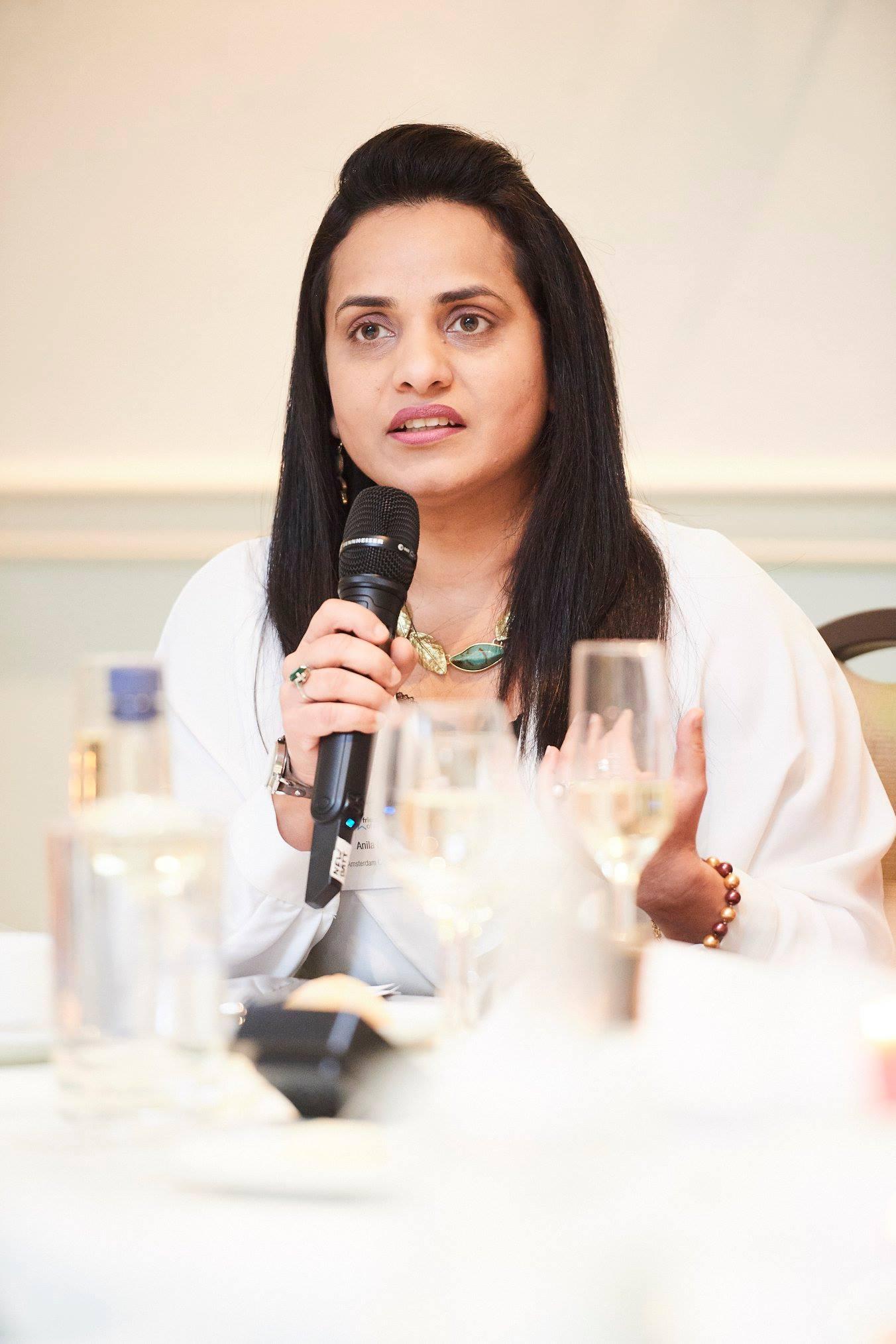
All my life and network was in Pakistan. I got a scholarship for my second Masters degree to study social justice, gender and peace studies in the Netherlands. In 2015, due to a certain turn of events, I was forced to sever ties with my family and had to request asylum in the Netherlands. All of a sudden, I had become a refugee. I went into a deep state of denial. To become what I was in Pakistan, I had worked day and night. This new status meant I had to restart my life from scratch with my new identity. I remember becoming more angry with each passing day. I used to hide the fact that I was a refugee; to this day, I am still not completely comfortable with it.
I could not stand the way people looked at me. In the past, when I told people that I was a student, they had praised my intelligence and achievement. I was a young Pakistani woman who had come to the Netherlands to study despite all odds. After I became a refugee, that sense of pride disappeared. All of a sudden, people felt sorry for me, pity even. It made me feel ashamed. It felt wrong to be a refugee, almost a crime. It felt like all my abilities, talent and intelligence had disappeared over night. Even though I was still the same person, why had the validity of it all, of who I was, disappeared?
Not many people who are not migrants can imagine the identity crisis that comes with this, including the added challenge of learning a completely new language, integrating into a new society, and trying to match the expectations that come with it from different layers of society. However, among refugees, my experience was far from unique.
I responded by founding New Women ConnectorsExternal link (NWC), a Europe-wide network dedicated to mainstreaming the voices of refugee and migrant women. Members of our network of refugee and migrant women speak with governmental and nongovernmental actors about integration policy and teach and encourage other refugee and migrant women to do the same. We connect refugees, migrants and diaspora from all over Europe to discuss the integration needs and priorities they find most urgent. We seek to build solution-oriented policy processes and advocate for more inclusive social policies.
This work is essential because refugees and migrant women are often perceived as the passive recipients of public policy, devoid of potential or promise, and incapable of offering reasonable solutions and incapable of serving as experts on their own situation, despite their lived experience.
When refugees are invited to participate in policy making, the experience is often one of tokenisation. This is compounded by the continued stereotyping of refugee women as oppressed, dependent and fragile beings – an identity that hinders the development of adequate integration initiatives. Self-representation is a challenge for refugee- and migrant-led organisations due to a lack of opportunities, networks, readiness of other stakeholders to partner with us, funding, and other financial resources.
Refugees and migrants, particularly womenExternal link, face so many integration challenges. We often fall into the cheap labour market despite skills and education obtained in our home countries. Integration policies rarely take into account the psychological needs of refugees and newcomers. Even when we get jobs and our integration is perceived statistically as “successful”, we often remain marginalised in our new societies, with our identities torn into pieces.
Women refugees are often sidelined by integration policies, as job training and education opportunities are often geared to traditionally male professions and are on a practical level – due to childcare and other challenges – unavailable to women. Many refugee women feel invisible in their host societies.
These challenges are true today but will only grow in the future, due to conflict, political instability, extreme poverty and climate change. The great challenge inspires my colleagues and me to work to improve refugee women’s diplomatic skills and capacities to contribute towards making the international and European refugee systems more effective and sustainable.
+ New Women Connectors reportExternal link
As refugee women, we want to be equal partners in the integration process and in designing effective public policy solutions to integration and other migration-related challenges. We have deep expertise based on our lived experience, and we have many skills, talents and ideas to bring to the discussion. We are committed to helping not just one another but to contributing our talents to our new societies. We are speaking outExternal link and we would like our voices to be heard. We deserve a seat at the table.
The views expressed in this article are solely those of the authors and do not necessarily reflect the views of swissinfo.ch.
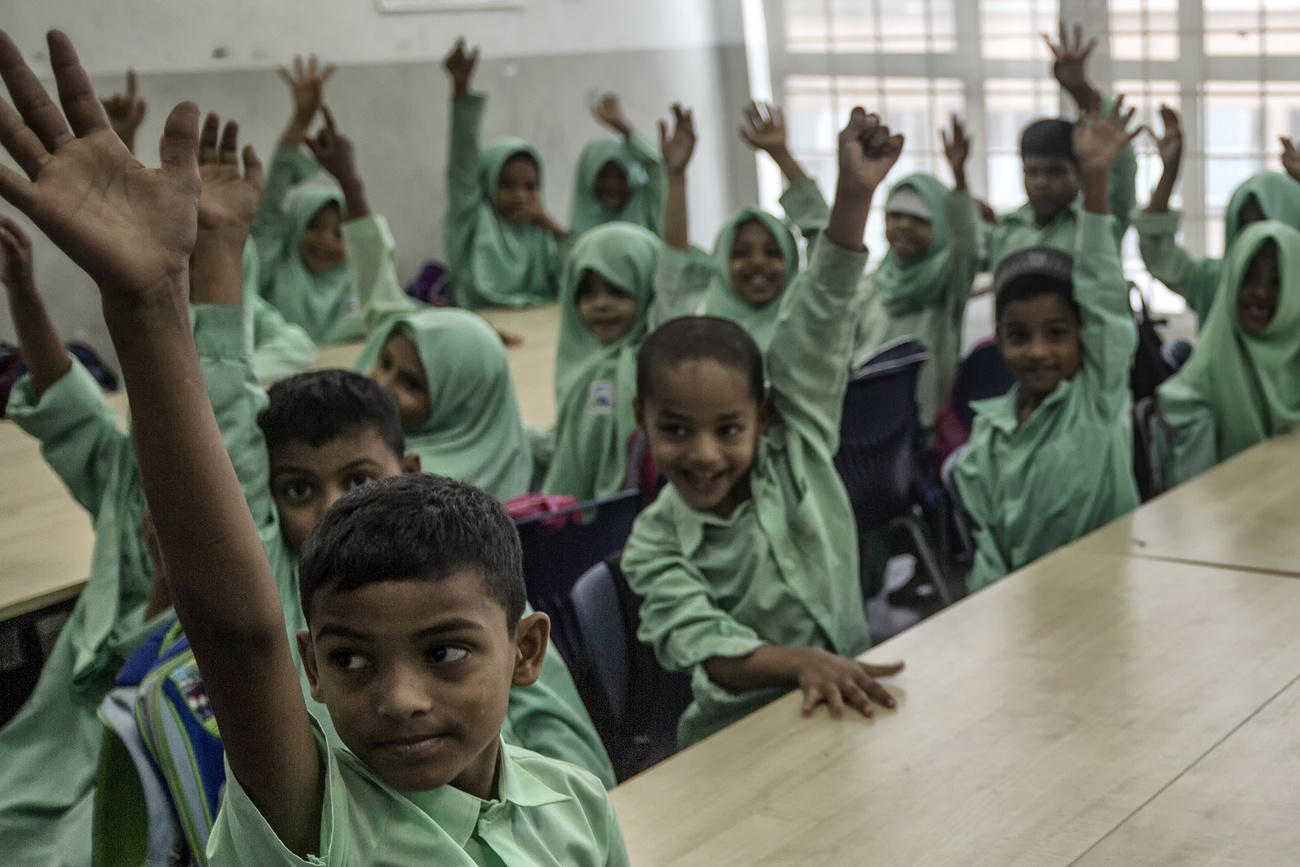
More
Landmark forum seeks ‘better answers’ to refugee response

In compliance with the JTI standards
More: SWI swissinfo.ch certified by the Journalism Trust Initiative
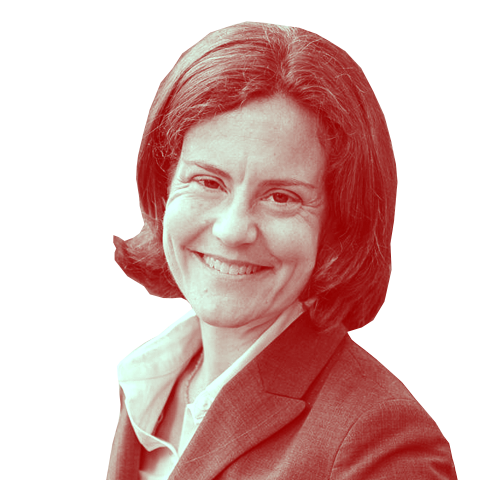
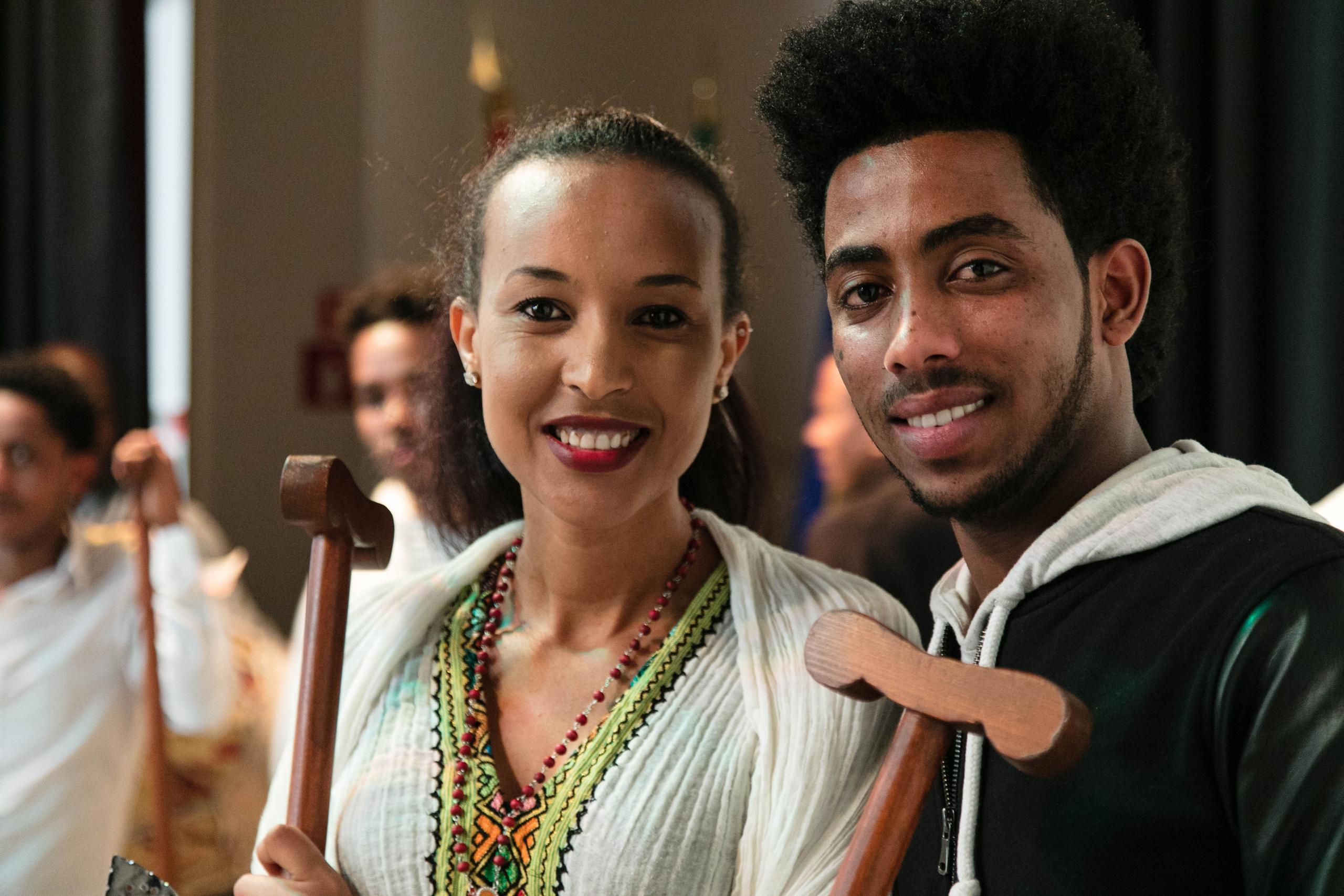
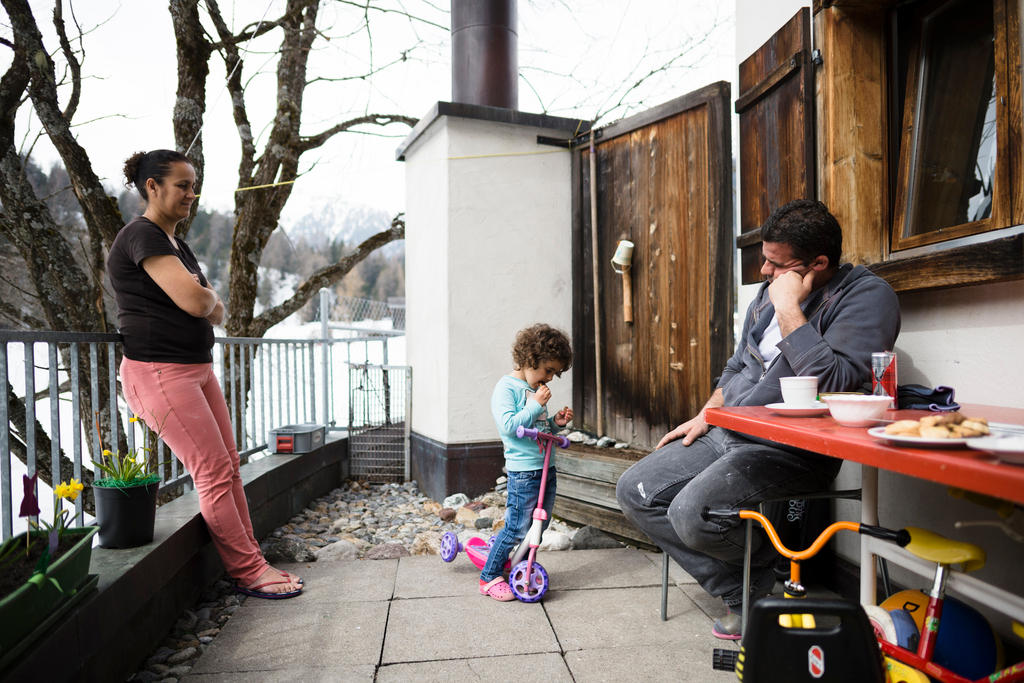
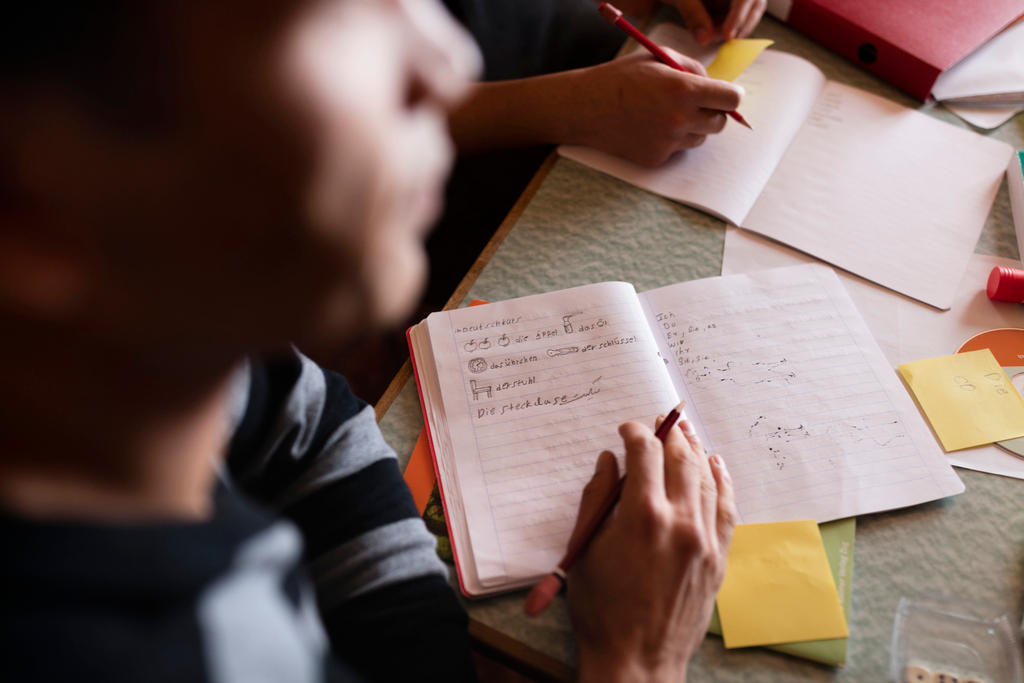
You can find an overview of ongoing debates with our journalists here . Please join us!
If you want to start a conversation about a topic raised in this article or want to report factual errors, email us at english@swissinfo.ch.